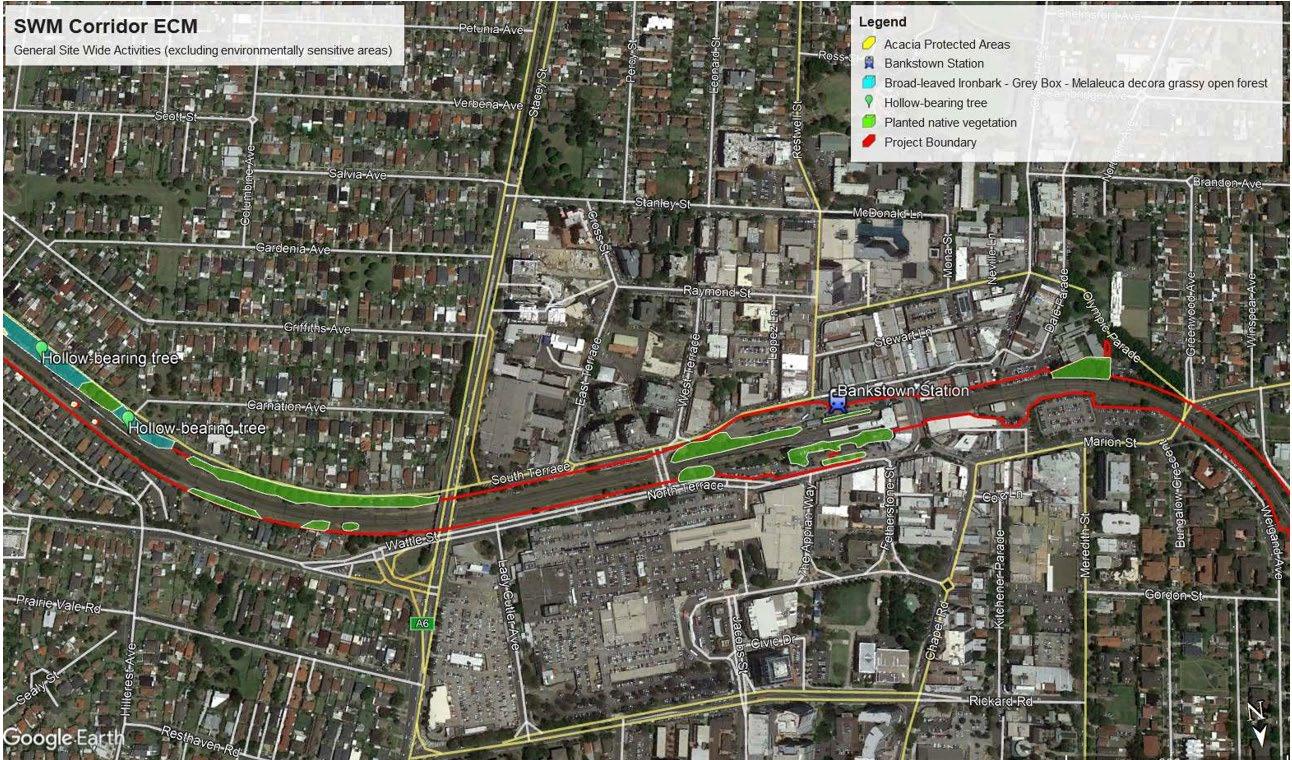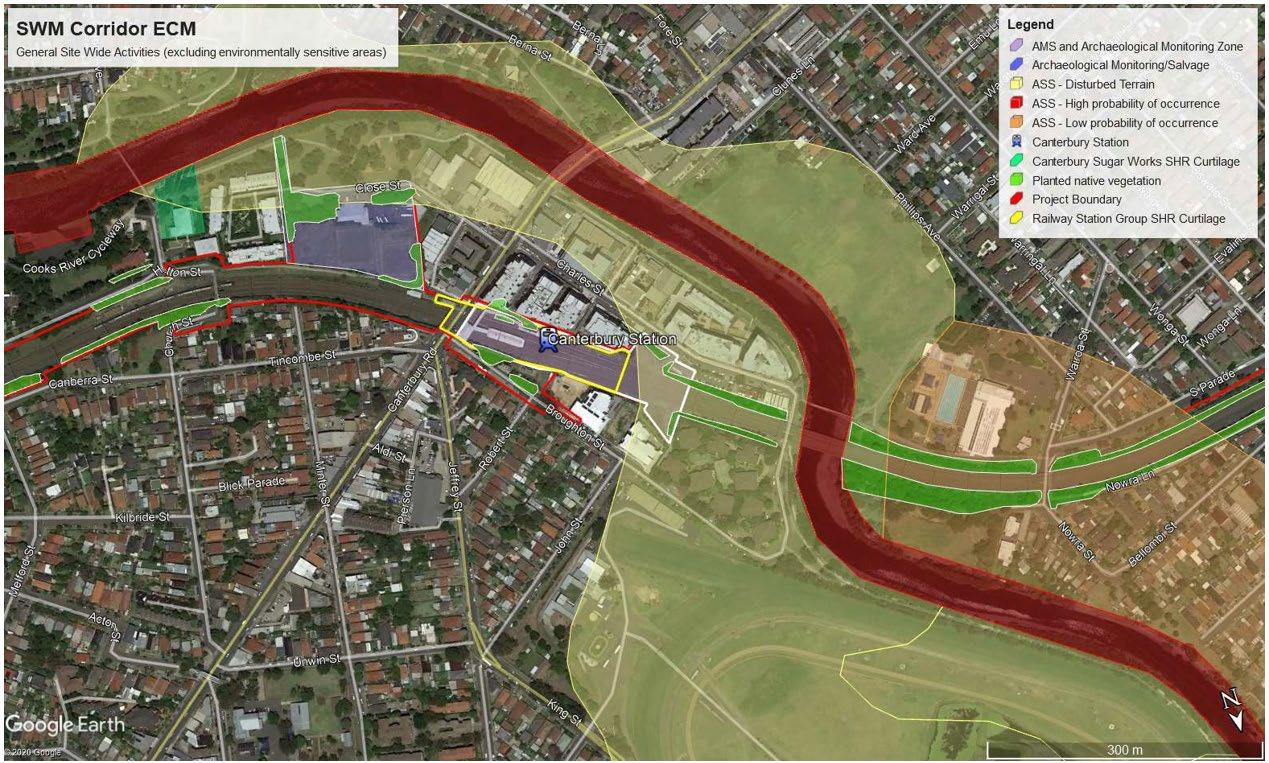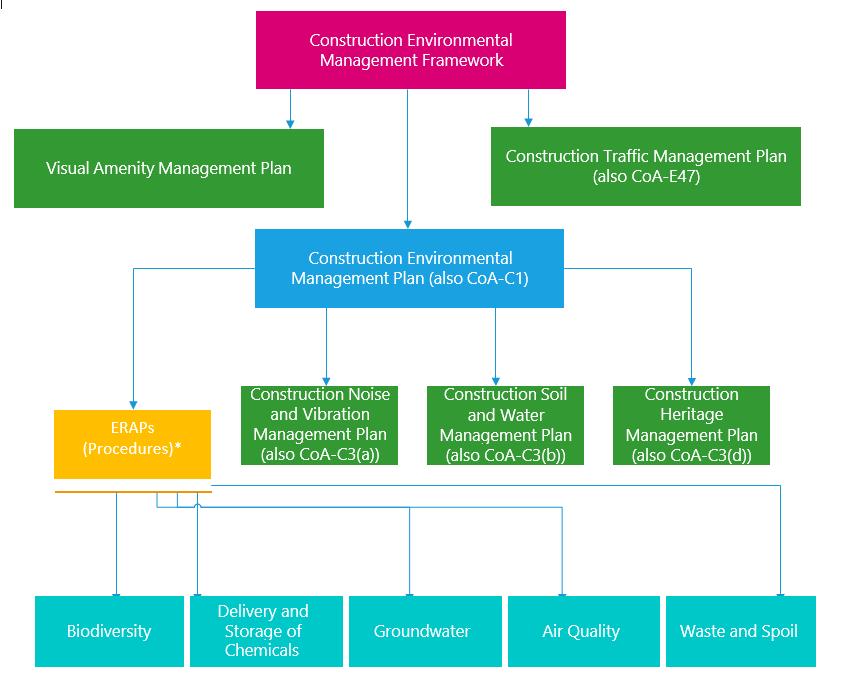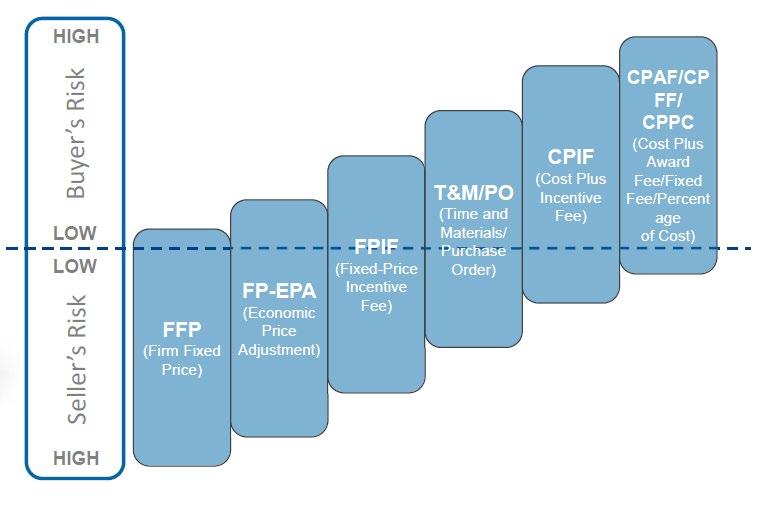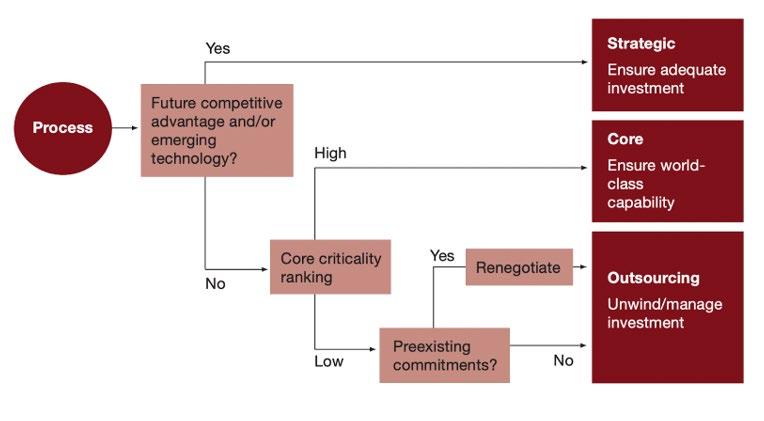
3 minute read
Table 4: The outcome of PERT example calculation of Sydney Metro Southwest
Example of specific activity: ( Assuming that partial site preparation included excavation can be separated in two activities)
Table 4: The outcome of PERT example calculation of Sydney Metro Southwest
Site preparation and excavatoin( the whole lines)
A(Detailed excavation )
B( Site levelling and preparation) (days) (days) (days) (days) S( )(days) Confidence level P-90 ()(days)
250 295 310 290 10 302.8
590 630 650 626.7 10 639.5
The outcome of calculation is shown above (table 4)
Activity A:
With 90% confidence level, Z score is 1.28 (Extracted from the probability table for Normal Distribution)
Therefore, the Activity A duration would be 302.8 days with 90% confidence level.
The expression in diagram is illustrated bellow:

The shade area represents the P-90 confidence level, which in this report we have 90% chance to complete the activity A within 302.8 days.
Activity B: The process of the calculation is almost the same with Activity A.
Therefore, with 90% confidence level, the activity B duration would be 639.5 days.
Partial site preparation (including excavation) duration= Activity A+ Activity B= 942.3 days with 90% confidence level.
This activity duration is included in the duration of site preparation extracted from timeline.
4.5 Schedule baseline (up to level 3)
4.5.1 Units of Measurement
Project activities will be measured in working days. All dimensions measurements tend to be made in metric values, and these values will be maintained to and consistent with the units mentioned in the part 4.1.5 of this report.
4.5.2 Project Working Days and Calendar
According to the assumptions of this report, construction working hours will be from 7am to 6 pm weekdays and be from 8am to 5pm on Saturdays through all construction life cycle in this project. Additionally, there will be an hour for lunch in working days.
4.5.3 Surrounding Areas Impact on Working Times
Given that the demand for T3 Bankstown lines remains ongoing, some construction works such as bridge works and corridor works would need to be undertaken during rail possession periods
when trains are not operating, to ensure that works are conducted as efficiently as possible, and that worker safety would be maintained. During each possession period like standard weekend possessions when the rail lines are closed and school holiday possessions when less traffic on the surrounding road network would assist the efficient operation of rail replacement bus services, alternative transport arrangements would be implemented to ensure the train services can continue. The possession period is responsible for the impact on partial working hours associated with Sydney Metro project and will be managed by local council accordingly.
In the event of unforeseen change or significant departures from the working hours, the project team will apply for Extension of Time (EOT) in accordance with the contract requirements, catering for the acceptable schedule risk contingency.
4.5.4 Schedule baseline

65

66
4.6 Schedule monitoring and control
The practice of monitoring the status of project operations in order to update project progress and manage deviations to the schedule baseline in order to meet the plan is known as schedule controlling. The main objective of this procedure is to help stakeholders easily recognize deviations from the plan and take corrective and preventive actions to reduce risk.
4.6.1 Schedule Progress Collection Process
On a monthly basis, project team members enter activity and progress updates into Primavera P6 (the online project-scheduling tool designated for the Sydney Metro project). The data is checked by the functional manager to ensure that the information supplied is accurate. The Project Scheduler confirms that the month's updates are complete and discusses the results with the Project Manager. Any input errors will be reported to the functional managers so that the project team member can rectify them promptly.
4.6.2 Schedule Progress Measurements
The Sydney Metro project will measure schedule performance using Schedule Variance (SV) and Schedule Performance Index (SPI). Furthermore, the project teams also track two supplementary data to improve the accuracy of estimation.
Proportion of Tasks Completed on Time — Calculates the percentage of tasks that are completed on time or ahead of schedule.
Percentage of Tasks Performed on Budget (Effort) – Calculates the percentage of tasks completed within their allocated time budget.
4.6.3 Schedule Reporting Format
Throughout the project life cycle, the following scheduled reports will be generated at the appropriate time intervals:

